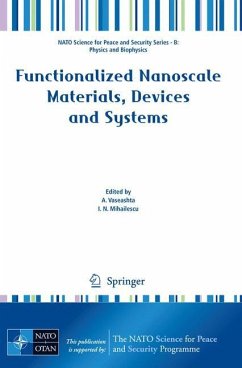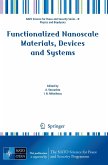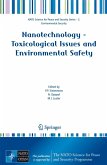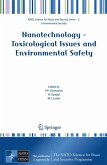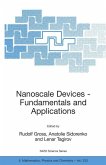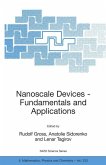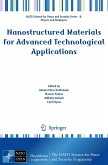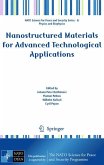This book arises from the NATO Advanced Study Institute (ASI) titled "Functionalized Nanoscale Materials, Devices, and Systems for chem.-bio Sensors, Photonics, and Energy Generation and Storage" held in Sinaia, Romania in June 2007. It comprises a variety of invited contributions by highly experienced educators, scientists, and industrialists, and is structured to cover important aspects of the field, from underlying principles, synthesis routes, characterizations, applications, and detailed considerations of commercial viability. In addition, the book consists of a selection of contributed articles describing various aspects of their current research and development activities. Several related topics ranging from nanomaterial in chemical-biological sensors, to energy storage and generation devices, and to environmental protection and pollution remediation. Several top-down (attrition) and bottoms-up (self-assembly) approaches to prepare nanomaterials are discussed. In addition, several synthesis routes, viz. synthesis using new laser systems generating ultra-short (ns, ps, fs, and very recently, as pulses) with very high quality beams that allow very accurate focusing, provide unique tools for handling and processing nanomaterials in the form of nanocoatings, nanopowders, nanotubes, and other advanced structures are also included in the book. It will be of considerable interest and value to those already pursuing or considering careers in the field of nanostructured materials and nanotechnology, in general. It also serves as a valuable source of information for those interested in related aspects of the field, such as science and technology of thin film materials and devices.
The primary objective of the NATO Advanced Study Institute (ASI) titled "Functionalized Nanoscale Materials, Devices, and Systems for Chem. -Bio Sensors, Photonics, and Energy Generation and Storage" was to present a contemporary and comprehensive overview of the field of nanostructured materials and devices and its applications in chem. -bio sensors, nanophotonics, and energy generation and storage devices. The study has become one of the most promising disciplines in science and technology, as it aims at the fundamental understanding of new physical, che- cal, and biological properties of systems and the technological advances arising from their exploration. Such systems are intermediate in size, between the isolated atoms and molecules and bulk material, where the unique transitional characteristics between the two can be understood, controlled, and manipulated. Nanotechnologies refer to the creation and utilization of functional materials, devices, and systems with novel properties and functions that are achieved through the control of matter, atom-by-atom, molecule-by-molecule, or at a micro-mo- cular level. Advances made over the last few years provide new opportunities for scientific and technological developments in nanostructures and nanosystems with new architectures with improved functionality. The field is very actively and rapidly evolving and covers a wide range of disciplines. Recently, various nanoscale materials, devices, and systems with remarkable properties have been developed, with numerous unique applications in chemical and biological sensors, nanophotonics, nano-biotechnology, and in-vivo analysis of cellular processes at the nanoscale.
The primary objective of the NATO Advanced Study Institute (ASI) titled "Functionalized Nanoscale Materials, Devices, and Systems for Chem. -Bio Sensors, Photonics, and Energy Generation and Storage" was to present a contemporary and comprehensive overview of the field of nanostructured materials and devices and its applications in chem. -bio sensors, nanophotonics, and energy generation and storage devices. The study has become one of the most promising disciplines in science and technology, as it aims at the fundamental understanding of new physical, che- cal, and biological properties of systems and the technological advances arising from their exploration. Such systems are intermediate in size, between the isolated atoms and molecules and bulk material, where the unique transitional characteristics between the two can be understood, controlled, and manipulated. Nanotechnologies refer to the creation and utilization of functional materials, devices, and systems with novel properties and functions that are achieved through the control of matter, atom-by-atom, molecule-by-molecule, or at a micro-mo- cular level. Advances made over the last few years provide new opportunities for scientific and technological developments in nanostructures and nanosystems with new architectures with improved functionality. The field is very actively and rapidly evolving and covers a wide range of disciplines. Recently, various nanoscale materials, devices, and systems with remarkable properties have been developed, with numerous unique applications in chemical and biological sensors, nanophotonics, nano-biotechnology, and in-vivo analysis of cellular processes at the nanoscale.

